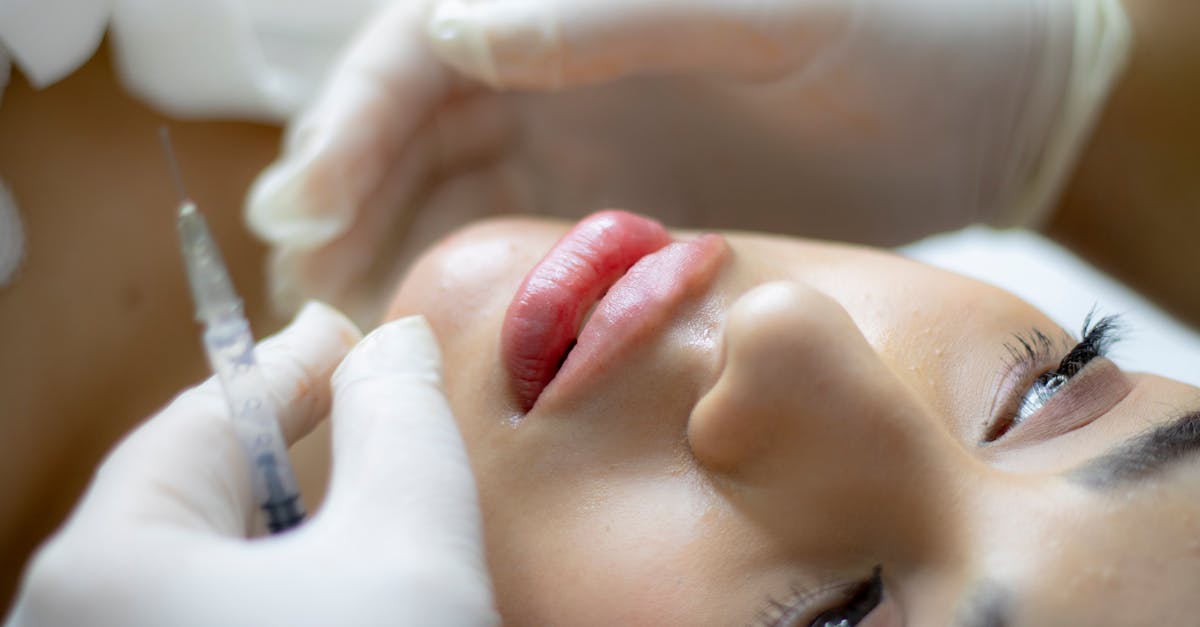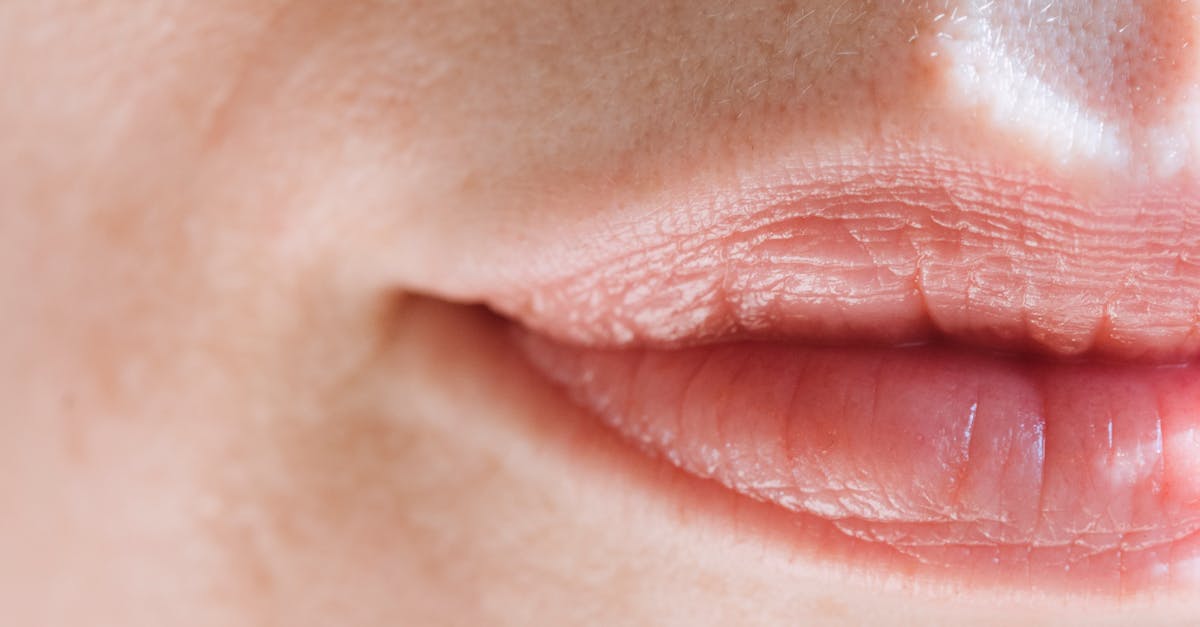
At nycosmeticsurgery.net, we offer top-of-the-line lip augmentation services provided by our skilled cosmetic surgeons. Whether you're looking to achieve a plumper pout or want to enhance the shape and definition of your lips, our team is dedicated to helping you achieve your desired look. With our state-of-the-art facilities and cutting-edge techniques, you can rest assured that you are in good hands. Our goal is to provide natural-looking results that enhance your beauty and boost your confidence. Contact nycosmeticsurgery.net today to schedule a consultation and learn more about our lip augmentation services.
Lip Augmentation Techniques and Options
Lip augmentation offers various techniques and options for patients seeking to enhance the appearance of their lips. One popular method involves injectable fillers, such as hyaluronic acid-based products like Restylane or Juvederm. These fillers can add volume to both the upper and lower lips, helping to create a fuller and more defined look. Another option is fat grafting, where fat is harvested from another area of the body and injected into the lips to achieve a natural and long-lasting enhancement.
For those looking for a more permanent solution, lip implants can be considered. These implants are usually made of soft silicone and are placed within the lips to provide lasting volume and shape. Lip implants can be customized to fit the patient's desired look, whether it's a subtle enhancement or a more dramatic change. When considering lip augmentation techniques and options, it is essential to consult with a board-certified plastic surgeon to discuss the best approach based on individual goals and anatomy.
Surgical vs Nonsurgical Lip Augmentation
When considering lip augmentation, individuals are often faced with the decision between surgical and nonsurgical procedures. Surgical lip augmentation typically involves procedures such as lip lifts, implants, or vermillion advancements. These methods are more invasive and may require downtime for recovery. On the other hand, nonsurgical lip augmentation involves injectable fillers like hyaluronic acid or Botox. Nonsurgical procedures are usually quicker, with minimal downtime, and can be done as outpatient treatments without the need for anesthesia.
Both surgical and nonsurgical lip augmentation procedures have their own set of benefits and considerations. Surgical options are more permanent and can provide precise and long-lasting results, while nonsurgical procedures are temporary and may require touch-ups over time. The choice between the two largely depends on individual preferences, desired outcomes, and willingness to undergo a more invasive procedure versus a less invasive one. Consulting with a board-certified plastic surgeon or dermatologist is crucial to understand the best options for achieving the desired lip enhancement goals.
Longevity of Lip Fillers and Implants
When considering lip augmentation options, it's essential to understand the longevity of fillers and implants used in the procedure. Fillers, such as hyaluronic acid-based products, typically last between six months to a year before the body naturally absorbs them. These fillers provide a temporary solution for enhancing lip volume and shape. On the other hand, silicone implants offer a more permanent option, but they may require replacement or adjustment over time due to factors like implant shifting or changes in the surrounding tissues.
The longevity of lip fillers and implants can vary depending on individual factors such as metabolism, lifestyle habits, and the type of filler or implant used. Patients should follow post-treatment care instructions provided by their cosmetic surgeon to ensure optimal results and prolong the effects of the lip augmentation procedure. Regular consultations with the healthcare provider can help assess the condition of the lips and determine the need for maintenance treatments or adjustments to preserve the desired lip shape and volume.
Expected Duration of Different Lip Augmentation Methods
Lip augmentation methods vary in terms of expected duration and maintenance requirements. Non-surgical options like filler injections typically last between 6 to 12 months, depending on the type of filler used and individual metabolism. Hyaluronic acid fillers such as Juvederm Ultra Plus are commonly used for lip augmentation and provide a natural look that gradually diminishes over time.
On the other hand, surgical techniques for lip augmentation, such as lip implants, can offer longer-lasting results. Silicone implants, for example, can provide permanent enhancement to the lips. However, it's essential to note that surgical procedures often involve a longer recovery time and carry a higher risk compared to non-invasive methods. Patients considering lip augmentation should consult with a board-certified cosmetic surgeon to determine the most suitable option based on their aesthetic goals and lifestyle.
Consultation and Preparation for Lip Augmentation
When considering lip augmentation, it is essential to schedule a consultation with a qualified cosmetic surgeon. During this initial meeting, the surgeon will discuss the patient's aesthetic goals and desired outcomes. The surgeon will also evaluate the patient's medical history, including allergies, medications, and previous surgeries, to ensure the safety and effectiveness of the procedure. Patients should be prepared to ask questions about the procedure, recovery process, and potential risks involved.
In preparation for lip augmentation, patients may be advised to abstain from smoking and avoid blood-thinning medications to reduce the risk of complications during and after the procedure. Depending on the type of lip augmentation chosen, patients may need to follow specific preoperative instructions, such as fasting before the procedure if general anesthesia will be used. Ensuring proper hydration and getting adequate rest before the procedure can also contribute to a smoother recovery process. Additionally, arranging for a responsible adult to drive the patient home after the procedure is crucial, especially if sedation is involved.
Questions to Ask Your Lip Augmentation Provider
Questions to ask your lip augmentation provider play a crucial role in ensuring that you have all the necessary information before undergoing the procedure. To start, inquire about the specific qualifications and experience of the provider in performing lip augmentation. Understanding their background and expertise can give you confidence in their abilities to deliver the desired results. Additionally, discuss the different lip augmentation techniques and options available, and seek recommendations based on your individual needs and expectations. It is essential to align your goals with the expertise of your provider to achieve optimal outcomes.
Another important question to address with your lip augmentation provider is the potential risks and complications associated with the procedure. Gain a thorough understanding of the possible adverse effects that may arise, as well as the steps taken to minimize these risks during and after the treatment. Inquire about the longevity of various lip fillers and implants, and discuss the expected duration of the chosen method. Understanding the timeline of results can help manage your expectations and plan for any future touch-ups or maintenance required to preserve the desired lip enhancement.
FAQS
Is lip augmentation painful?
Pain levels can vary depending on the individual and the method used for lip augmentation. Some procedures may involve discomfort or minor pain, but your provider can discuss options for managing any potential discomfort.
How long does lip augmentation typically last?
The duration of lip augmentation results can vary based on the method used. Temporary fillers may last several months to a year, while implants can provide longer-lasting results. Your provider can give you an idea of the expected longevity based on the approach chosen.
Are there any risks associated with lip augmentation?
Like any cosmetic procedure, lip augmentation carries some risks. These can include swelling, bruising, infection, or allergic reactions. It's important to discuss potential risks and complications with your provider before undergoing the procedure.
Can I have lip augmentation if I have allergies?
If you have allergies, especially to certain substances like dermal fillers or anesthesia, it's crucial to inform your provider during the consultation. They can assess your medical history and recommend suitable options or precautions to minimize the risk of an allergic reaction.
How soon can I resume normal activities after lip augmentation?
Recovery time can vary depending on the type of lip augmentation performed. While some people may resume normal activities immediately, others may need a few days for any swelling or bruising to subside. Your provider can provide specific post-treatment instructions tailored to your situation.


